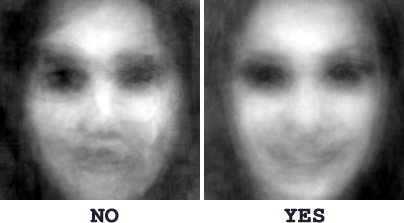/PROJECT_IDEAS.md
https://gitlab.com/ini-python-lab-course/ss16 · Markdown · 126 lines · 68 code · 58 blank · 0 comment · 0 complexity · 0675f45386dbf3faac26fb80e3fc2368 MD5 · raw file
- # Brainstorming: libraries
- ## Scientific computation
- The most important libraries (at least for us) are [NumPy](http://www.numpy.org/) and [SciPy](http://www.scipy.org/). They contain the most important mathematical methods, like:
- * linear algebra
- * statistics
- * signal processing
- * optimization
- * Fourier Transforms
- * ...
- There are many others, specialised for specific fields. For instance [Natural Language Toolkit (NLTK)](http://www.nltk.org/) for linguistic tasks.
- And then visualization is important, of course. The most popular library is [matplotlib](http://matplotlib.org/).
- ## Machine learning
- You can find many different ML problems here:
- * [Kaggle](https://www.kaggle.com/)
- * [UCI Machine Learning Repository](https://archive.ics.uci.edu/ml/datasets.html)
- Some useful libraries containing different ML methods:
- * [scikit-learn](http://scikit-learn.org/stable/)
- * [Modular Toolkit for Data Processing (MDP)](http://mdp-toolkit.sourceforge.net/): It's not very actively developed anymore but we still use it a lot in our workgroup.
- ## (Social) network analysis
- There are several Python libraries for (social) network analysis like [NetworkX](http://networkx.github.io/) or [graph-tool](https://graph-tool.skewed.de/). Datasets containing networks can found for instance here:
- * [Stanford Large Network Dataset Collection](http://snap.stanford.edu/data/index.html)
- * [Gephi Wiki](https://github.com/gephi/gephi/wiki/Datasets)
- * [Social Graphs in Movies](http://moviegalaxies.com/)
- ## IT-Security
- There are crypto libraries like [cryptography](https://cryptography.io/en/latest/) and [PyCrypto](https://www.dlitz.net/software/pycrypto/).
- ## Scraping websites
- * [import.io](https://import.io/): Service that extracts data from websites
- * [BeautifulSoup](http://www.crummy.com/software/BeautifulSoup/): Convenient access to content of a downloaded website
- * [Scrapy](http://scrapy.org/): Framework for scraping websites
- * [Selenium](http://www.seleniumhq.org/): Allows complete automation of a browser via script
- Think of data sources like concert tickets or products, movies (IMDB)...
- Note however, that many websites don't need to be scraped because they offer a proper API to access their content. Here are examples from a [long list](http://www.programmableweb.com/category/all/apis?order=field_popularity) with some of the most popular web APIs:
- * Google Maps, Twitter, YouTube, Flickr, Facebook, Amazon Product Advertising, Twillo, Last.fm, eBay, ...
- ## Web development
- There are Python frameworks for developing websites, i.e., organizing all the server-side logic and databases with Python. Two notable framworks are [Django](https://www.djangoproject.com/) (complex) and [WebPy](http://webpy.org/) (light-weight).
- # Examples
- ## Virtual rat hippocampus
- 
- 
- That's something we are doing a lot in our workgroup. If you like to try something like this, ask Fabian!
- ## Google's dreaming neural networks
- Google realeased the Python scripts for it's famous dreaming neural networks ([deepdream](https://github.com/google/deepdream)). Others have build on that, for instance [making *Fear and Loathing in Las Vegas* even more uncanny](https://github.com/graphific/DeepDreamVideo):
- 
- Here's another project that created a simple user interface: [bat-country](https://github.com/jrosebr1/bat-country)
- ## WhatsApp chat bots
- Someone wrote [yowsup](https://github.com/tgalal/yowsup), an Python wrapper for the (unoffcial) WhatsApp API. People used this for instance to write chat bots ([yowlayer-cleverbot](https://github.com/tgalal/yowlayer-cleverbot), [WAbot](https://github.com/KaveenR/WAbot)) for WhatsApp.
- ## Automating Tinder with Eigenfaces
- Someone wrote a (Java) script to automatically find matches for him/her using Eigenfaces: [tinderbox](https://github.com/crockpotveggies/tinderbox)
- 
- ## Cheap ticket notification
- A nice example for scraping websites that don't have an API: [LTUR-Notifer](https://github.com/policecar/ltur-notifier) scrapes information from [bahn.ltur.com](bahn.ltur.com) and sends email or push notification to a smartphone when a new cheap ticket appears.
- ## Packet sniffing and injection
- Also people seem to use Python scripts for [packet sniffing and injection](http://suryamattu.com/PACKET-SNIFFING-TUTORIAL), for instance.
- ## Implementing Machine learning algorithms on your own
- Basically all you need is numpy and the corresponding math.
- Examples: Feed Forward Neural Networks, Auto encoders, Sparse Coding, Baysian Networks, Restricted Boltzmann machines, ...
- ## Solving a machine learning problem
- Using existing libs like scikit the focus would be on solving a particular task in a good way.
- So it would be problem driven and you should have a concrete idea about the problem
- Have a look at http://scikit-learn.org/stable/index.html for examples for clustering, resgression, classification, ...
- Examples: Object detection (Eye, hand, ...), Spam detection, ...
- ## Raspberry Pi
- Another place to turn your Python skills into fun and usefull projects it the [Raspberry Pi](https://www.raspberrypi.org/). Some random projects include
- * [High-altitude photography](http://opensource.com/life/15/9/pi-sky-high-altitude-ballooning-raspberry-pi),
- * [Crypto currency trackers](http://makezine.com/projects/make-43/crypto-currency-tracker/),
- * [Dirty dish detectors](http://makezine.com/projects/make-43/dirty-dish-detector/), and
- * [Pirate Radios](http://makezine.com/projects/raspberry-pirate-radio/).
- You can find many more projects for inspiration on [Make](http://makezine.com/?s=raspberry) and [Instructables](http://www.instructables.com/id/Raspberry-Pi-Projects/).